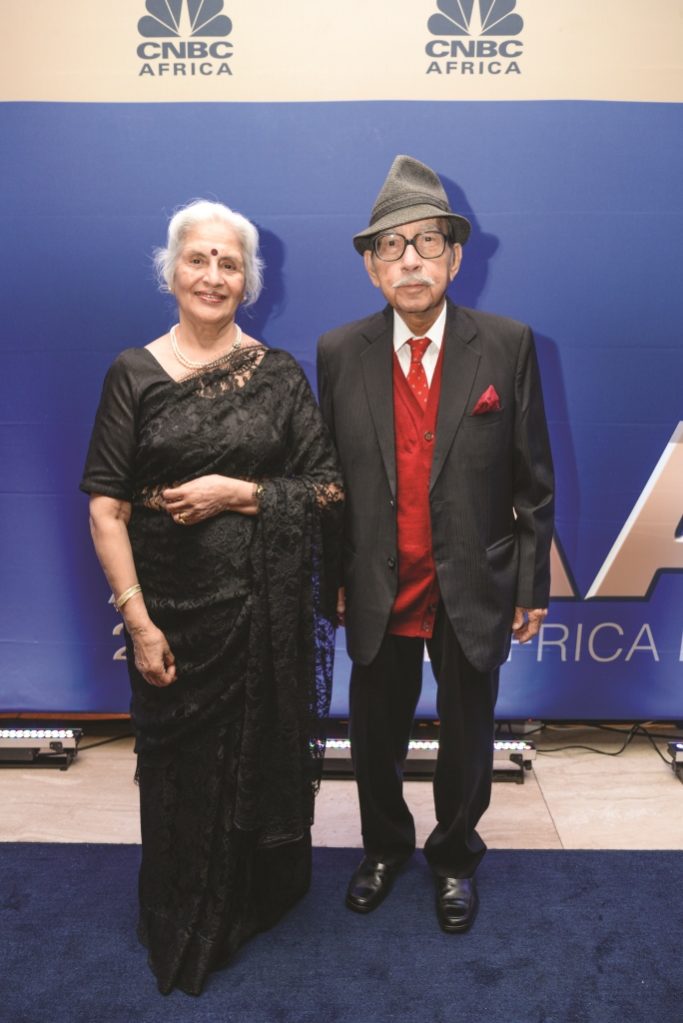When Colonel Satya Pal Wahi took his morning walk in the park near his home in Gurgaon, a city 32 kilometers outside the Indian capital of New Delhi, he always took a few copies of FORBES AFRICA with him. When influential people stopped him for chat, which happened often to one of India’s best known people, he would hand them a copy with a recommendation that they read it. He believed that our reporting was promoting business in Africa, 5,000 miles away, and gave his time and energy, selflessly, to support this. That was the kind of man Colonel Wahi was; always working, looking forward and willing a better world.
In his busy office, Colonel Wahi read and dissected every line of FORBES AFRICA. Often he used to correspond with me about our articles with beautiful, flowing, prose; always concise, and precise.
In person, he was a warm, humble, kind, and gentle man, with whom there was never a dull moment. I had the honor to meet him a number of times, on his many visits to Africa, and also at the weddings of his grandchildren on home soil.
I was always struck by his energy and tireless erudition. With his eyes lit up, it was always straight into the issues of the day. The last time, in Chandigarh, we debated, at length, the opportunities and pitfalls of artificial intelligence.
Colonel Wahi passed on this passion for business and life to his son, Rakesh, who was also an Indian Army officer engineer and the present publisher of FORBES AFRICA; his grandson, Sid, is the executive director of our magazine.
A remarkable man, who had lived a memorable and illustrious life, was born in Khushab, a small village near Lahore, in what is now Pakistan. He graduated in electrical and mechanical engineering from Banaras Hindu University. On graduation he joined the Indian Military Academy, Dehradun, before joining the Corps of the Electrical and Mechanical Engineers, in 1950, where he reached the rank of Colonel.
On retiring from the army, Colonel Wahi served many corporate enterprises which included Bokaro Steel Plant (1969-74), Bharat Heavy Electricals (1974-78), before joining Cement Corporation of India (CCI), a wholly-owned company of the Government of India as its chairman. He turned the loss-making CCI into a profitable business and, in 1981, was appointed chairman of ONGC, the largest oil and gas exploration and production company in India. His tenure at ONGC coincided with the development of Bombay High offshore oilfields and he is credited with contributions in raising India’s oil output from 9 million tons to 32 million tons per annum. His efforts are also reported behind the modernization of the organization by the introduction of computerization and modern office facilities and the establishment of a training center for the organization.
There were a number of occasions where Col. Wahi’s charismatic leadership was hailed. One such incident was his deft handling of the blowout in the offshore drilling rig Sagar Vikas. His professional stewardship in the case not only handled the blowout effectively, but ONGC was praised all over the media for the courageous act of the Oil Soldiers of India. A more significant victory, perhaps, was the confidence that grew in the cadres of ONGC after this incident.
After his stint at ONGC, he was associated with Bharat Ophthalmic Glass Limited and served as the Chairman of the Standing Committee of Public Enterprises.
A recipient of the degree of Doctor of Science (honoris causa) from three Indian universities, Wahi has also received honors such as Petrotech Lifetime Achievement Award, Indian Geophysical Union Silver jubilee Award and Giants International Award. The Government of India awarded him the third-highest civilian honor of the Padma Bhushan, in 1988, for his contribution to society.
The world was richer for the life of Col Satya Pal Wahi and poorer for his passing. His legacy will live for all time.
